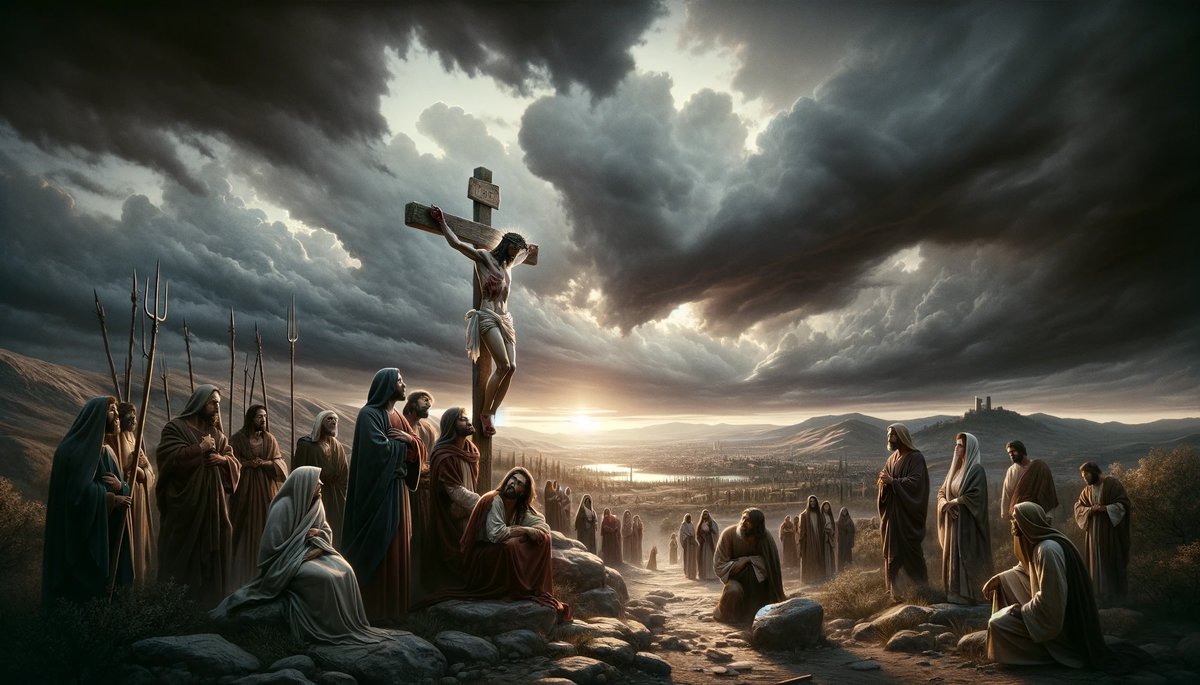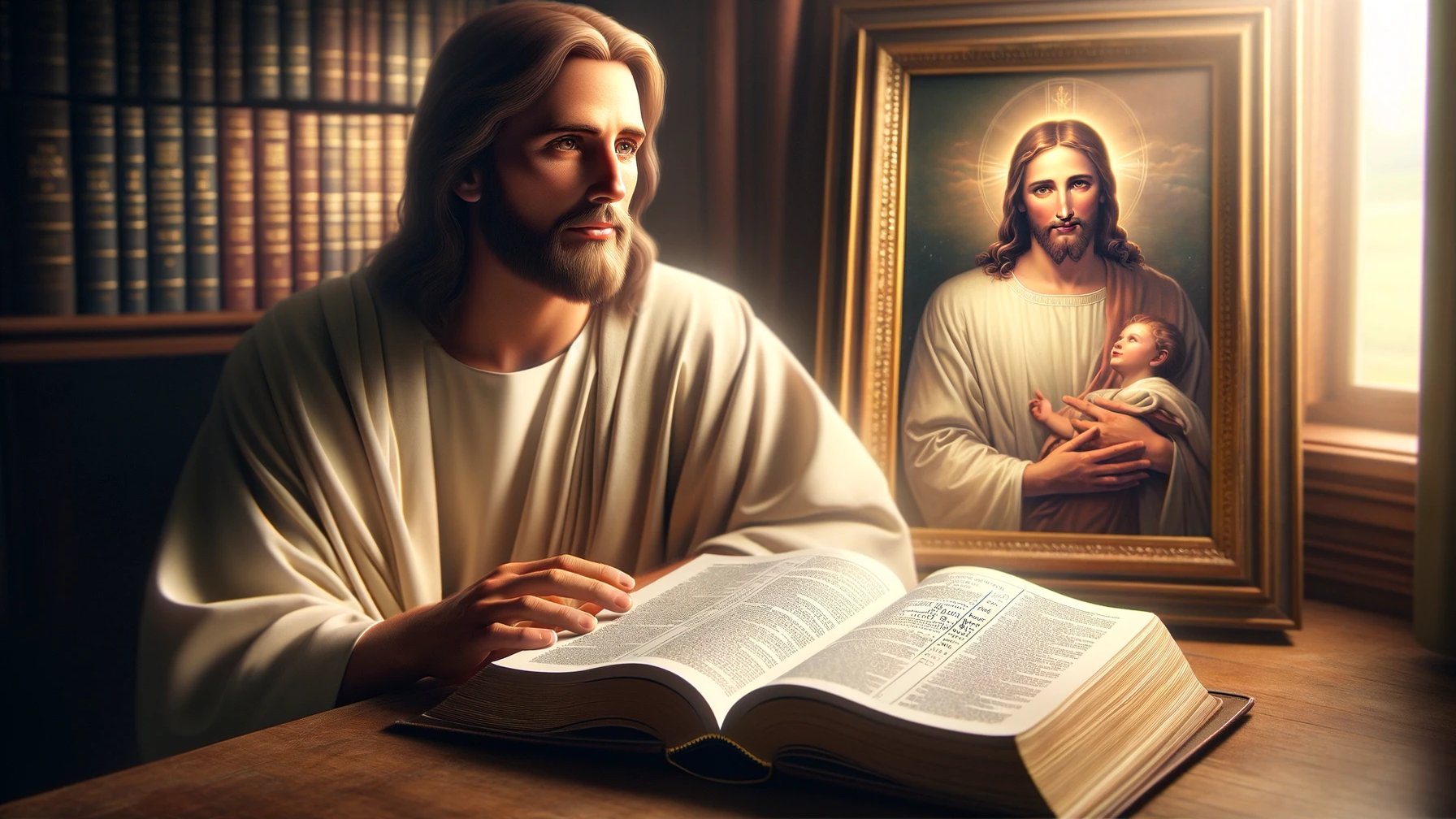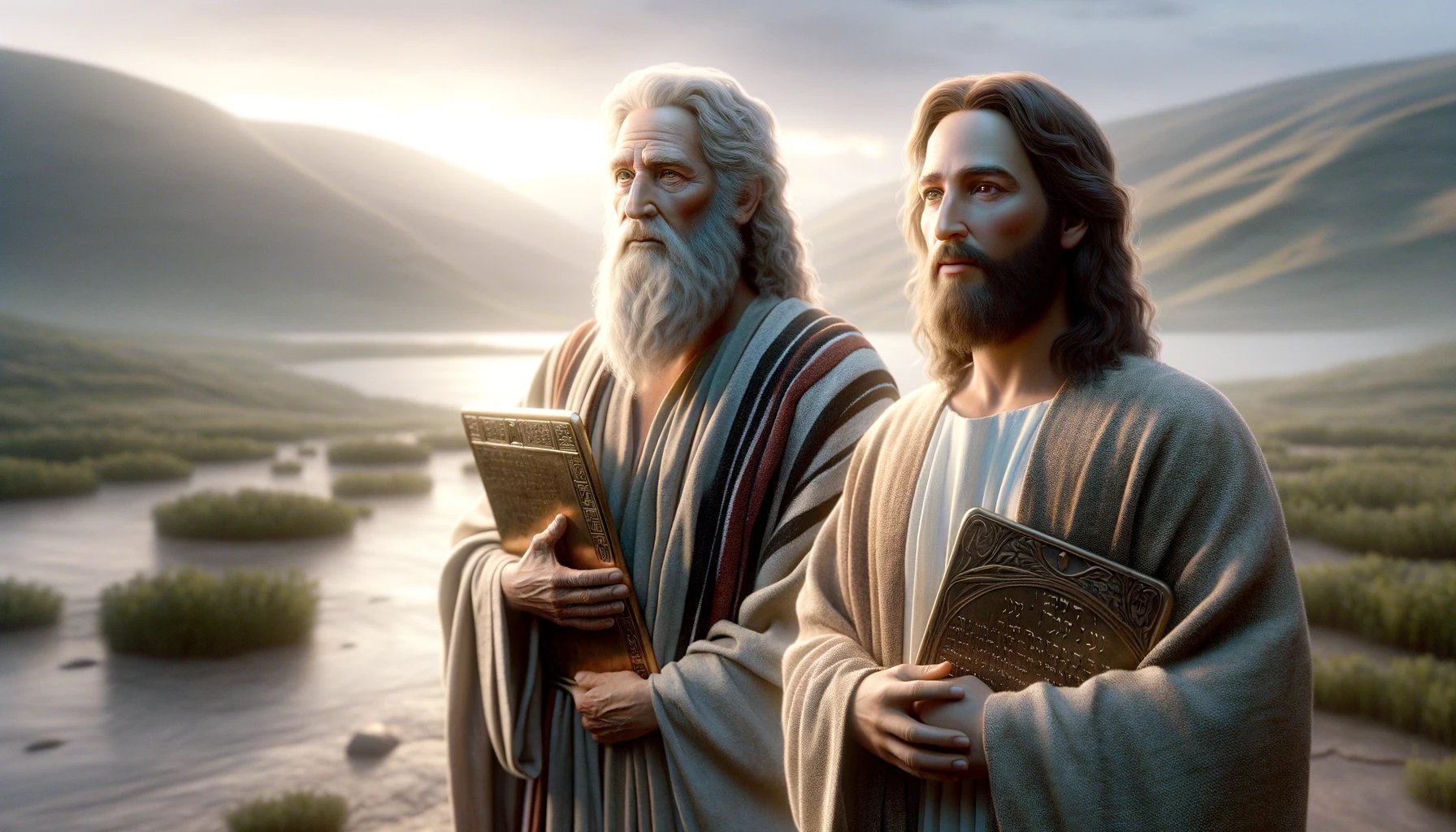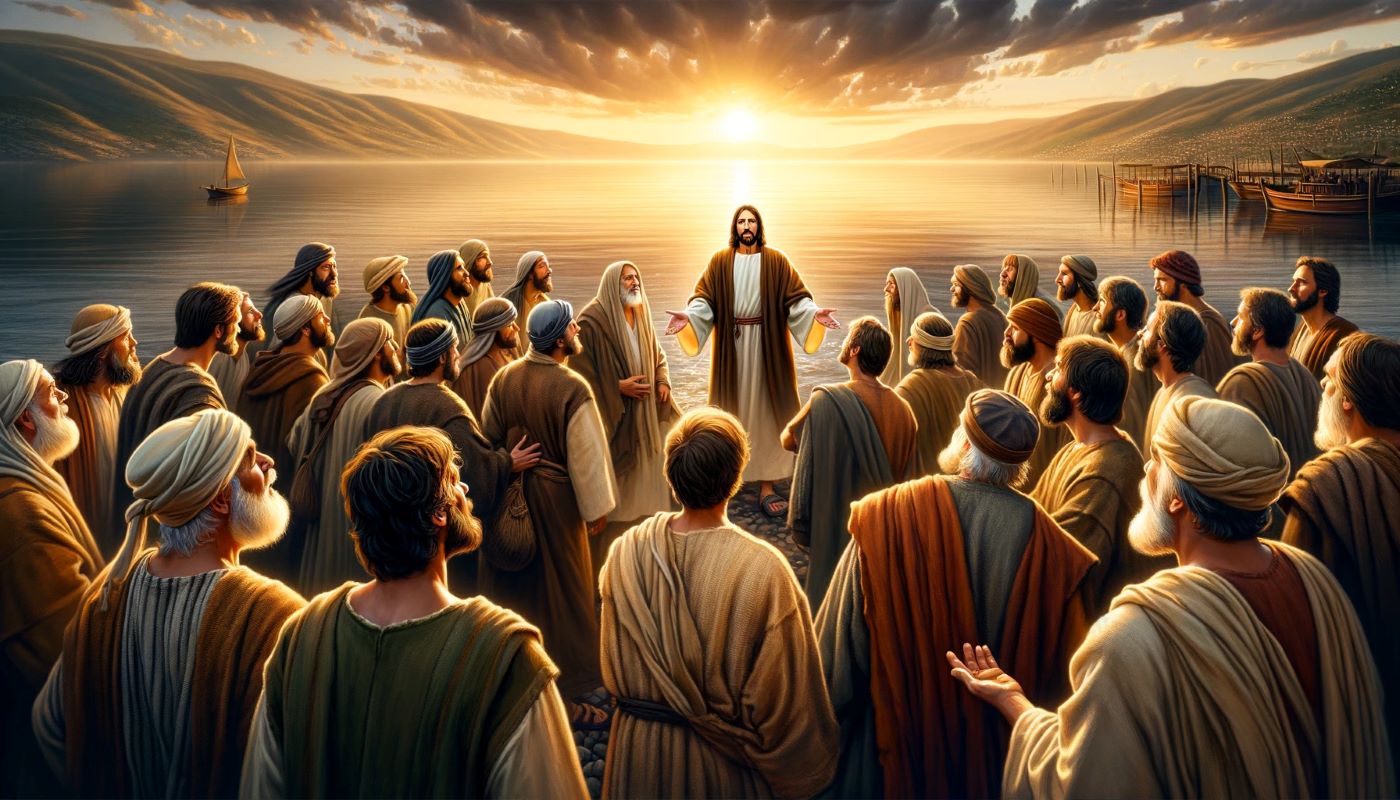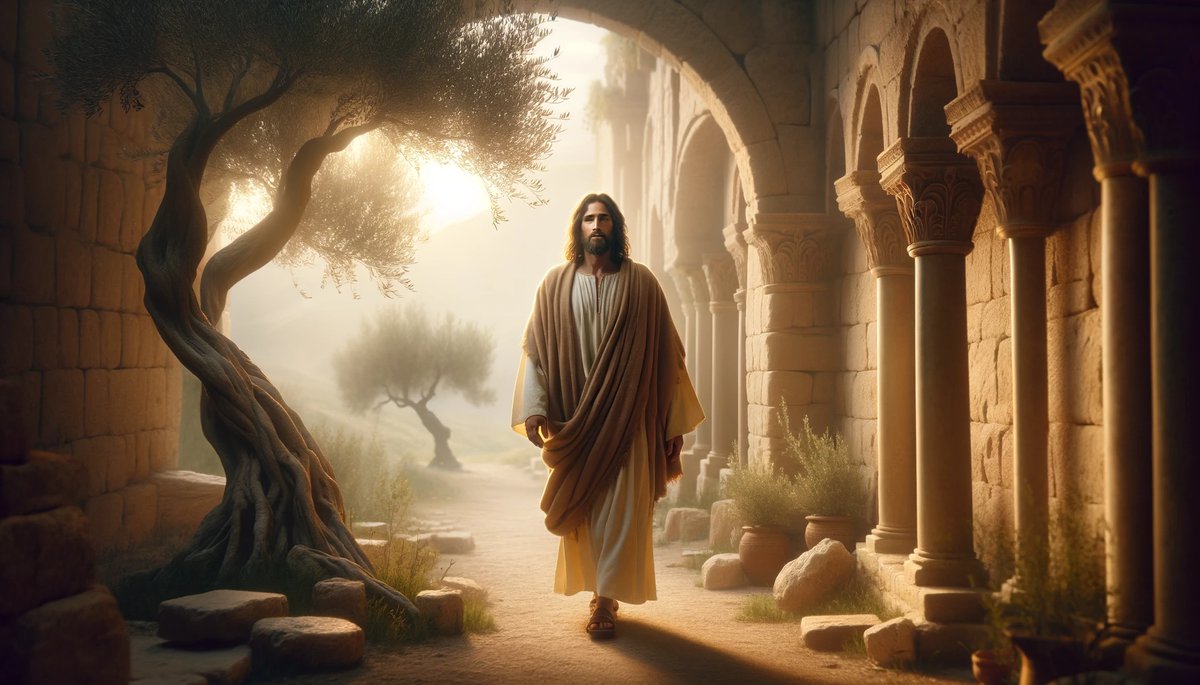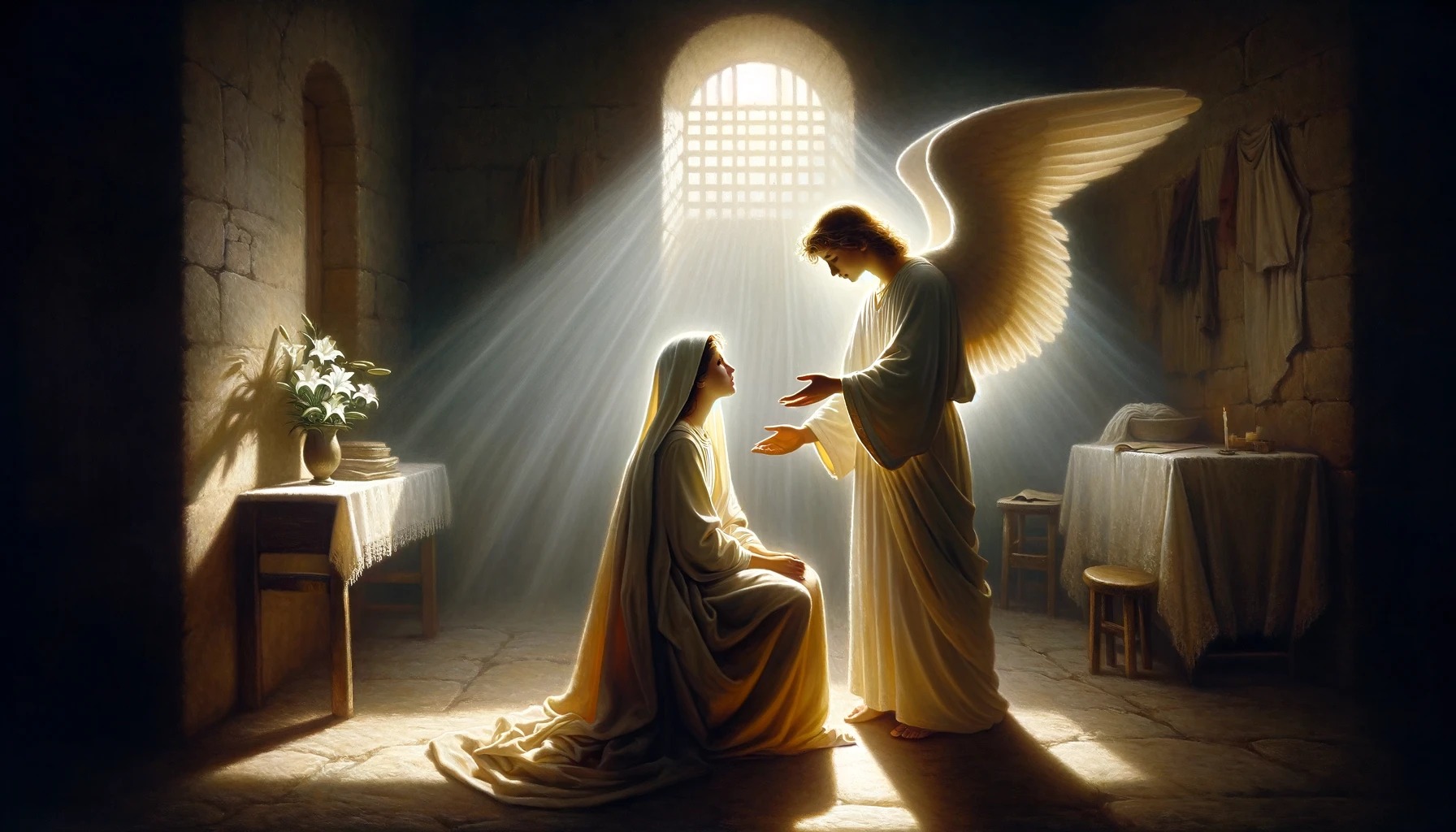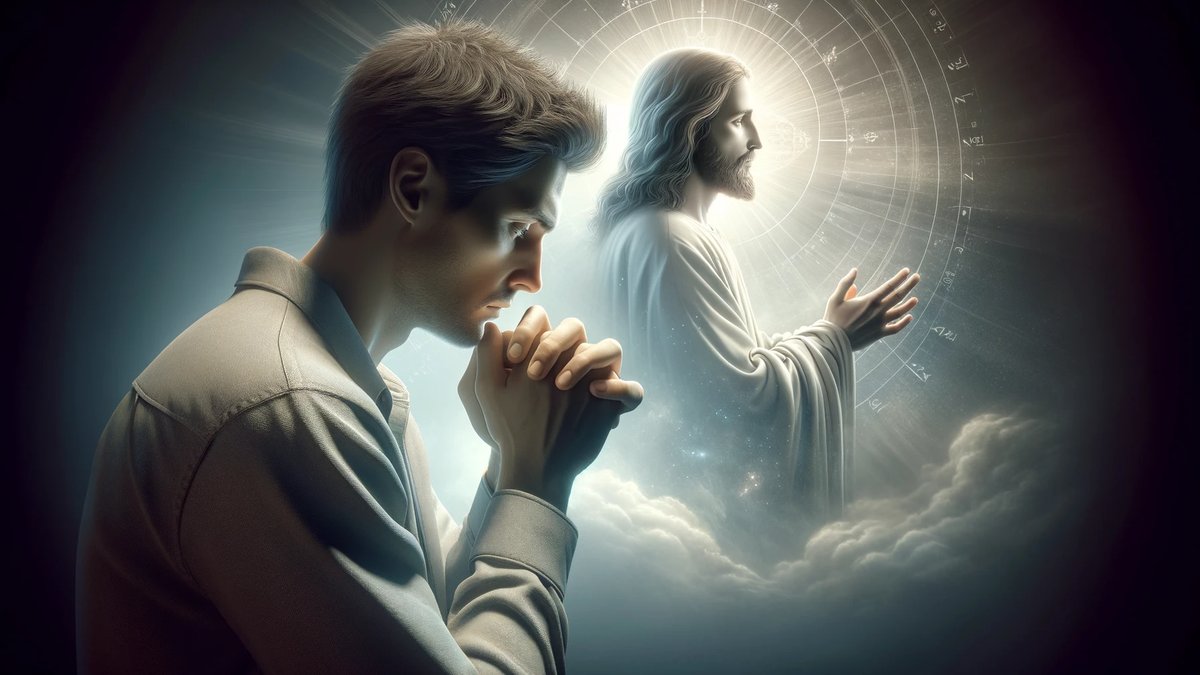Home>Christian Videos>Bible Stories>How Many Generations From Abraham To Jesus Christ


Bible Stories
How Many Generations From Abraham To Jesus Christ
Published: February 29, 2024
Jason DeRose, Managing Editor at Christian.net, uses his expertise in religion and journalism to deepen understanding of faith's societal impacts. His editorial leadership, coupled with a strong academic background, enriches the platform’s diverse content, earning him recognition in both journalism and religious circles.
Discover the fascinating lineage from Abraham to Jesus Christ in the Bible. Explore the generations and stories that connect these two pivotal figures. Uncover the rich history of the Bible with this insightful exploration.
(Many of the links in this article redirect to a specific reviewed product. Your purchase of these products through affiliate links helps to generate commission for Christian.net, at no extra cost. Learn more)
Table of Contents
Introduction
How many generations were there from Abraham to Jesus Christ? This question is a common point of interest for many people seeking to understand the lineage and genealogy of Jesus Christ. The genealogy of Jesus is recorded in the Gospels of Matthew and Luke in the New Testament, and it provides valuable insight into the historical and religious significance of Jesus' ancestry. Exploring the generations from Abraham to Jesus Christ offers a fascinating journey through biblical history, shedding light on the lineage that ultimately led to the birth of Jesus.
The Lineage of Abraham
The lineage of Abraham is a crucial starting point when tracing the generations from Abraham to Jesus Christ. According to the biblical account in the book of Genesis, Abraham, originally known as Abram, was called by God to leave his homeland and journey to a new land that God would show him. This call marked the beginning of a covenant between God and Abraham, in which God promised to make Abraham the father of a great nation. This covenant is foundational to the lineage that ultimately leads to the birth of Jesus Christ.
-
Abraham's Call and Covenant: The story of Abraham's call and covenant with God is a pivotal moment in the history of the Israelites and the Christian faith. It signifies the establishment of a chosen lineage through which God's plan for salvation would unfold. Abraham's unwavering faith and obedience to God's call set the stage for the generations that would follow in his lineage.
-
The Promise of Descendants: Central to the lineage of Abraham is the promise of descendants as numerous as the stars in the sky and the sand on the seashore. This promise, given by God to Abraham, serves as the foundation for the generations that would come after him. It is within this context of divine promise that the subsequent lineage, leading to Jesus Christ, takes shape.
-
The Patriarch of Faith: Abraham is revered as the patriarch of faith in both Judaism and Christianity. His willingness to trust in God's promises, even in the face of seemingly insurmountable obstacles, sets a powerful example for future generations. The significance of Abraham's faith and obedience reverberates throughout the lineage that culminates in the arrival of Jesus Christ, the central figure of the Christian faith.
The lineage of Abraham serves as the bedrock upon which the genealogy leading to Jesus Christ is built. It establishes the foundational covenant, promises, and faith that shape the narrative of Jesus' ancestry and underscores the profound spiritual significance of tracing the generations from Abraham to Jesus Christ.
The Generations from Abraham to King David
The generations from Abraham to King David form a crucial link in the lineage leading to Jesus Christ. The biblical account in the book of Genesis traces the descendants of Abraham, beginning with his son Isaac and continuing through successive generations. This lineage serves as a foundational thread connecting the patriarchs of the Israelites to the eventual establishment of the Davidic monarchy, a pivotal development in the history of ancient Israel.
-
The Lineage of Isaac: The narrative of the generations from Abraham to King David unfolds with the birth of Isaac, the long-awaited son of Abraham and Sarah. Isaac, whose name means "he laughs," embodies the fulfillment of God's promise to Abraham and Sarah, setting the stage for the continuation of the lineage. Through Isaac, the lineage of Abraham extends to subsequent generations, laying the groundwork for the emergence of significant figures in Israelite history.
-
The Patriarchs and Matriarchs: The lineage from Abraham to King David encompasses the lives of prominent figures such as Jacob, also known as Israel, and his twelve sons, who became the eponymous ancestors of the twelve tribes of Israel. The stories of matriarchs such as Rebekah, Leah, and Rachel further enrich the tapestry of this lineage, portraying the complexities of family dynamics and the enduring faithfulness of God's promises.
-
The Davidic Covenant: The culmination of the generations from Abraham to King David is marked by the anointing of David as the king of Israel. David's ascent to the throne represents a pivotal moment in the history of the Israelites, as it signifies the establishment of the Davidic dynasty. Moreover, God's covenant with David, promising an enduring kingdom and a royal lineage, holds profound implications for the future fulfillment of divine promises through the lineage leading to Jesus Christ.
The generations from Abraham to King David serve as a bridge connecting the foundational covenant with Abraham to the establishment of the Davidic monarchy, laying the groundwork for the unfolding of God's redemptive plan. This lineage not only provides historical continuity but also carries profound theological significance, shaping the narrative of Jesus Christ's ancestry and underscoring the intricate interplay of divine providence and human agency in the unfolding drama of salvation history.
The Line of David to the Babylonian Exile
The lineage from David to the Babylonian Exile marks a significant period in the historical and spiritual trajectory of the Israelites, carrying profound implications for the lineage leading to Jesus Christ. Following the establishment of the Davidic monarchy, subsequent generations witnessed a complex interplay of triumphs, challenges, and divine interventions that shaped the course of Israelite history.
-
The Reigns of Successive Kings: The line of David to the Babylonian Exile encompasses the reigns of various kings who ascended the throne of Israel and Judah. From the reign of Solomon, the son of David, to the era of the divided kingdom and the subsequent rulers of both Israel and Judah, this period reflects the ebb and flow of political, religious, and social dynamics within the Israelite nation. The narratives of these kings, characterized by moments of faithfulness and apostasy, illuminate the complexities of leadership and the enduring relevance of divine promises amidst the vicissitudes of history.
-
Prophetic Voices and Divine Warnings: Throughout the lineage from David to the Babylonian Exile, prophetic voices emerged to proclaim messages of warning, exhortation, and hope to the people of Israel and Judah. Prophets such as Isaiah, Jeremiah, and Ezekiel played pivotal roles in articulating God's judgments and promises, calling the nations to repentance, and offering glimpses of future restoration. Their prophetic utterances intersected with the unfolding narrative of the Davidic lineage, underscoring the intricate relationship between divine revelation and historical events.
-
The Babylonian Exile and the Promise of Restoration: The culmination of the lineage from David to the Babylonian Exile is marked by the pivotal event of the Babylonian conquest and the subsequent exile of the Israelites. The exile, a watershed moment in Israelite history, engendered profound upheaval and displacement, yet it also set the stage for the emergence of renewed hope and the promise of restoration. The prophetic visions of a restored kingdom and a righteous branch from the line of David served as beacons of assurance amid the desolation of exile, pointing towards the ultimate fulfillment of God's redemptive plan through the lineage leading to Jesus Christ.
The lineage from David to the Babylonian Exile encapsulates a rich tapestry of historical events, spiritual insights, and divine promises that reverberate through the annals of Israelite history. This period not only serves as a pivotal juncture in the narrative of Jesus Christ's ancestry but also embodies the enduring themes of divine faithfulness, human frailty, and the redemptive purposes of God amidst the complexities of human history.
The Generations from the Exile to Jesus Christ
The generations from the Babylonian Exile to Jesus Christ represent a pivotal period in the historical and spiritual continuum of the Israelites, culminating in the advent of Jesus Christ as the central figure of the Christian faith. Following the Babylonian Exile, the narrative of Jesus' lineage unfolds through a series of significant events, individuals, and divine interventions that shape the trajectory of salvation history.
-
The Return from Exile: The period following the Babylonian Exile witnessed the return of the Israelites to their homeland under the leadership of figures such as Zerubbabel, Ezra, and Nehemiah. This era of restoration and rebuilding marked a crucial phase in the preservation of Israelite identity and the reconstitution of religious and communal life in the land of Judah. The return from exile set the stage for the subsequent developments that would pave the way for the arrival of Jesus Christ.
-
The Intertestamental Period: The intertestamental period, spanning the time between the close of the Hebrew Bible and the emergence of the New Testament, encompasses a diverse array of historical, cultural, and religious phenomena. This era witnessed the influence of Hellenistic culture, the rise of Jewish sects such as the Pharisees and the Sadducees, and the political dominance of foreign powers such as the Seleucids and the Romans. The intertestamental period set the backdrop for the socio-political milieu into which Jesus Christ would be born, shaping the context of his ministry and message.
-
The Messianic Hope: Throughout the generations from the Exile to Jesus Christ, the messianic hope remained a central theme within Jewish religious consciousness. The longing for a promised deliverer, descended from the line of David, who would bring about the restoration of Israel and the establishment of God's kingdom, permeated the collective aspirations of the Jewish people. This fervent expectation of the Messiah, rooted in the prophetic promises of old, found its fulfillment in the person and mission of Jesus Christ, who embodied the long-awaited hope of Israel.
The generations from the Exile to Jesus Christ encapsulate a tapestry of historical, cultural, and theological developments that converge in the birth and ministry of Jesus Christ. This period not only serves as a bridge connecting the rich tapestry of Israelite history to the advent of the Messiah but also embodies the enduring themes of divine providence, human agency, and the fulfillment of God's redemptive purposes in the person of Jesus Christ.
Read more: How Many Years Did Jesus Christ Live
Conclusion
The journey through the generations from Abraham to Jesus Christ unveils a tapestry of historical, spiritual, and theological significance that reverberates through the annals of biblical history. From the foundational covenant with Abraham to the establishment of the Davidic monarchy, the complexities of the Babylonian Exile, and the intertestamental period, the lineage leading to Jesus Christ embodies the intricate interplay of divine promises, human agency, and the unfolding drama of salvation history. The genealogical records in the Gospels of Matthew and Luke not only provide a glimpse into the ancestral heritage of Jesus Christ but also convey profound truths about the redemptive purposes of God and the fulfillment of messianic hope. As such, the generations from Abraham to Jesus Christ serve as a testament to the enduring faithfulness of God and the culmination of divine promises in the person of Jesus Christ, whose birth and ministry embody the fulfillment of ancient prophecies and the dawning of a new era in the history of humanity.



